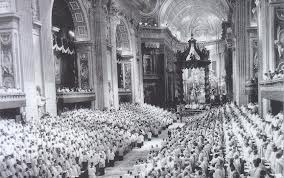Dalle colonne di libri presenti in camera da letto,
appoggiati per terra, su su fino al comodino, ha fatto capolino qualche giorno
fa il libro di “appunti” di Don Giussani, Il rischio educativo. E’ la
riedizione del 2005 dell’opera pubblicata per la prima volta nel maggio 1977. L’ho riletto. E’ un libro di un centinaio di pagine,
si legge in un paio di ore. Sembra
scritto oggi, per i giovani di oggi, per il nostro tempo.
Dall’introduzione: “L’idea fondamentale di una educazione
rivolta ai giovani è il fatto che attraverso di essi si ricostruisce una
società; perciò il grande problema della società è innanzitutto educare i
giovani (il contrario di quel che avviene adesso).”
Ma che cosa intendiamo con il termine educazione? Io credo che l’educazione consista nel fornire
un criterio di giudizio adeguato per comprendere la realtà, a partire da quel
preciso metro quadro di terra dove il buon Dio ci ha fatto nascere. Da questo
punto di vista la cultura del paese di origine è fondamentale per incominciare
il cammino. E’ con essa che il giovane deve rapportarsi e per così dire fare i
conti con la realtà che lo circonda e lo interroga. Cultura infatti è concepire le cose , la
realtà secondo un ideale. Don Giussani parte dall’esperienza cristiana per
proporre un modello di vita, un ideale che risponda alle domande di verità, di
bellezza, di felicità presenti nel cuore di ogni giovane.
Per quale fine siamo su questa terra?
A questa domanda Don Giussani nel libro risponde proponendo l’incontro con l’altro come origine per poter
sperimentare e vivere l’incontro con Cristo. Da questo punto di vista l’educatore
ha un compito fondamentale nel presentare al giovane questa possibilità. Scrive Don Giussani: “occorre suscitare nell’adolescente
personale impegno con la propria origine; occorre che l’offerta tradizionale
sia verificata; e ciò può essere fatto solo dall’iniziativa del ragazzo e da
nessun altro per lui”.
In questi tempi, dove la parola crisi abbonda sulla bocca
dei più e dove essere giovani è forse ancora più difficile che in passato,
rileggere quest’opera di un grande educatore di giovani aiuta noi adulti a rimetterci sul giusto
binario. Penso soprattutto agli educatori,
agli insegnanti, ma anche a noi genitori. Quotidianamente ci troviamo davanti i volti
dei nostri ragazzi che ci chiedono un aiuto per comprendere da dove iniziare il
loro personale viaggio su questa terra. Rileggere Il rischio educativo, o
leggerlo per la prima volta, può aiutarci nel nostro lavoro di insegnanti,
nella nostra vocazione di genitori.
Non è mai troppo tardi per iniziare il cammino, certo rischioso
, di educare un giovane ad amare il prossimo suo, come se stesso.
Luigi Giussani, Il rischio educativo, Rizzoli - Milano






